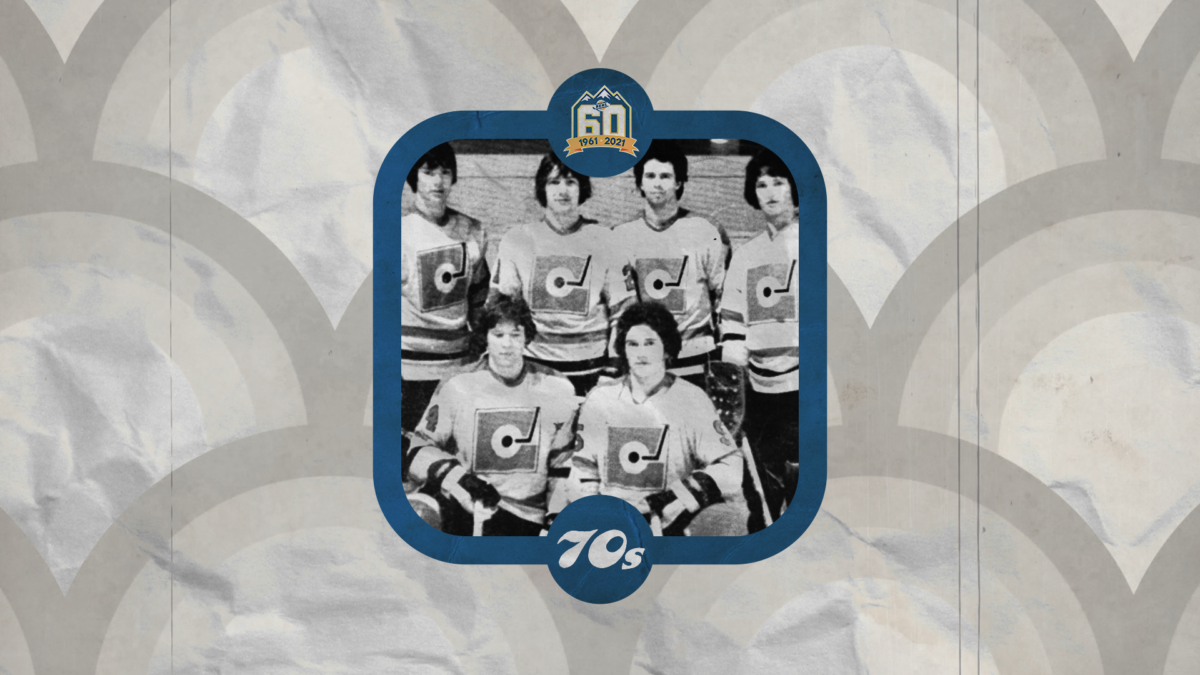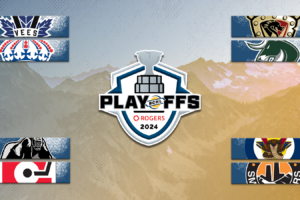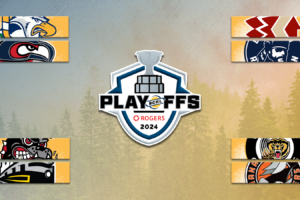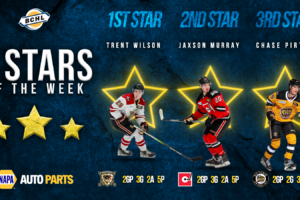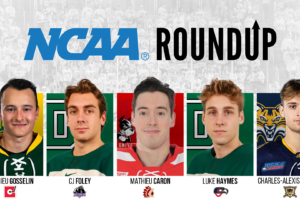As we celebrate the BC Hockey League’s 60th Anniversary season, we will take a look back at the past and celebrate the teams and people that made this league what it is today. Today, we go back to the league’s second decade of existence, the 1970s.
+++
The first decade of the BCHL mainly featured the founding four teams, located in Kamloops, Kelowna, Penticton and Vernon, but by 1970 the league had already begun expanding. That would continue to be a big theme as the following decade played out when another 10 teams entered the league, although many of them were short lived.
The founding four teams continued to dominate in the early part of the decade, but a new powerhouse team emerged in the years that followed.
Expansion Boom

With the recently renamed BC Junior Hockey League (BCJHL) searching for viable markets to expand their reach in the 1970s, the result was a lot of trial and error. The New Westminster Bruins, Victoria Cougars and Vancouver Centennials entered the fold in the late ’60s, but all said goodbye after just four years.
In 1970, the league welcomed the Chilliwack Bruins, then the Bellingham Blazers and Nanaimo Clippers in 1972. The year after, it was the Langley Lords turn to join the club. The second half of the decade saw even more teams enter the fray, including the Kamloops Braves (after the Rockets moved), Abbotsford Flyers, Chilliwack Colts (after the Bruins left), Delta Suns, Richmond Sockeyes and Nor’Wes Caps.
For current-day BCHL fans, the Clippers are likely the most recognizable name from that group. With the exception of one season when they were known as the Esquimalt Clippers in 1982-83, the team has remained virtually untouched since 1972.
In addition to the expansion boom, the decade also saw some existing BCJHL teams relocate. Most significantly, the Kamloops Rockets moved to White Rock and became the Centennials in 1973 and less than a year later, they moved again to Merritt where they remain today.
A New Powerhouse

Vernon was the only founding four team without a league championship in the 1960s, but they remedied that when the Essos brought the league championship home in 1970 and 1972. Kamloops, Penticton and Kelowna each won one apiece before the league gave way to some new blood.
In 1975, the Bellingham Blazers won their first of two championships in the decade, but 1976 marked the beginning of a dominant run for the Nanaimo Clippers organization. The Clippers won three straight titles from 1976 to 1978, all three times over the Penticton Vees. The third was won in controversial fashion as the Vees forfeit the series after a brawl broke out in Game 3.
According to former Nanaimo coach Larry McNabb, his team won the championship, but paid for it on the bottom line.
“It was a disaster,” recalled McNabb. “We split two games in Penticton, and then we had a brawl in Game 3. Penticton’s coach pulled his team off the ice, but they started it. We were declared the winner, but the problem was that I was getting 2,000 fans a game. We won a championship, but lost money. We got robbed!”
A Monumental First
The 1970s saw the first BCJHL player selected by a team in the NHL Entry Draft. In 1974-75, Merritt Centennials forward Greg Agar put up 90 points in 52 regular-season games which undoubtedly caught the eye of scouts at the highest level. At the 1975 NHL draft in Montreal, Que., Agar was taken in the 10th round by the California Golden Seals to become the first player selected from the BCJHL.
The Vernon, B.C. native would never end up playing any NHL games, but he was the first in what became a long line of players from the league hearing their names called at the draft. Prior to that, it was common for young players to get their start in the BCJHL, then move on to the Western Canadian Hockey League (now known as the WHL) where they would eventually get drafted, but Agar was the first to be taken straight out of the BCJHL, which is common practice now days.
Agar, who is now 66-years-old, played one more year in Merritt, before embarking on a minor-league career.
Churning Out Talent

The 1970s was also the decade where alumni from the BCJHL started to make their mark at the highest level. Several players who came through the league in the decade went on to have productive and successful careers in the NHL.
Glenn Anderson, who won six Stanley Cups in his career and totaled 1,099 points, got his start with the Bellingham Blazers in 1977-78. He is one of only three former BCHL players to top 1,000 points in the NHL.
Other players like John Ogrodnick (Maple Ridge Bruins), Mel Bridgman (Nanaimo Clippers), Stan Smyl (Bellingham), Barry Pederson (Nanaimo) and Ryan Walter (Langley Lords) all came through the BCJHL in the 1970s and went on to collect over 600 NHL points.
This group of players led the way for the crop of superstar NHL players that came from the league in the 1980s and ’90s.
Another notable player in the 1970s was Vernon Essos forward Ed Johnstone. He played for Vernon for two years from 1970 to 1972 and eventually embarked on a 12-year NHL career with the New York Rangers and Detroit Red Wings.
He echoed the sentiments of many who played at the time. Back then, junior hockey was a much different game than it is now.
“There wasn’t nearly as much scoring as there is today, but it was a good league,” said Johnstone. “I think it was a little tougher. You had to take the body. I think there was way less stick work than there is today. If you did wield your stick around, you had to stand up for yourself. You learned how to play the game and you learned how to take a check and give a check. The number-one thing was that you learned how to protect yourself. You were a fair player. You just played the game hard.”























